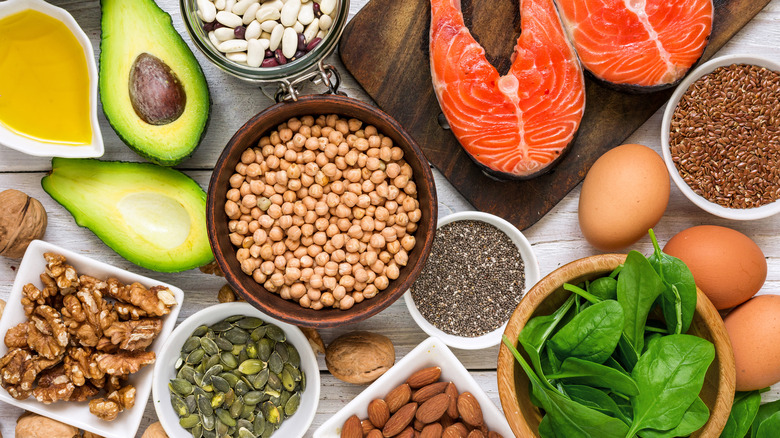You're Not Getting Enough Omega-3s If This Happens To You
Sometimes it feels as if our worries over getting the right amount of nutrients are trumped by more pressing health matters. Many of us are invested in getting enough sleep and enough exercise. We're trying to limit our screen time and our refined carbs. And we're doing our best to stay on top of our dentist and doctor appointments. Yes, maintaining your health can feel like a full time job at times. But it can get easier if you are maintaining a diet rich with the right nutrients. Take omega-3s, for example. According to WebMD, omega-3 fatty acids are essential to maintaining structure for the walls of our cells. They also contribute towards a well-functioning heart, immune system, and lungs. In addition, these vital fatty acids can also help one manage joint pain stemming from arthritis, and lower levels of depression and inflammation.
If you want to stay in tip-top health but suspect you're not getting enough omega-3s, there are a few ways you can tell.
There are both internal and external signs
"Most of the symptoms one would experience without an adequate intake of omega-3 fatty acids are internal and have no real physical signs," says Brigitte Zeitlin, a registered dietician, to Insider. "They may experience higher amounts of inflammation in the body, they may have higher cholesterol, as well as an increased risk of heart disease, which requires blood work from your doctor to truly determine your health status."
Even though a lack of omega-3s in your diet may have the most consequences to your body internally, there is one sign that you may be able to visibly see and want to scratch. "You may start to experience dry, rough, scaly skin, or dermatitis (inflamed skin)," Zeitlin tells Insider.
Blood results from your doctor can show you if you should be upping your omega-3 fatty acid game. If you want to be on the safe side and start introducing them right away, you can visit the seafood aisle at the grocery store and pick up some anchovies, salmon, mackerel, and herring. All of these fish are rich with omega-3s. If you're not a fan of fish, you can start spreading chia seeds or walnuts on top of your meals for an extra dose, says WebMD. We know there is a lot to keep track of when it comes to your health. But considering how important omega-3s are to the functions of your body, keeping them a priority will only make the overall job easier.


